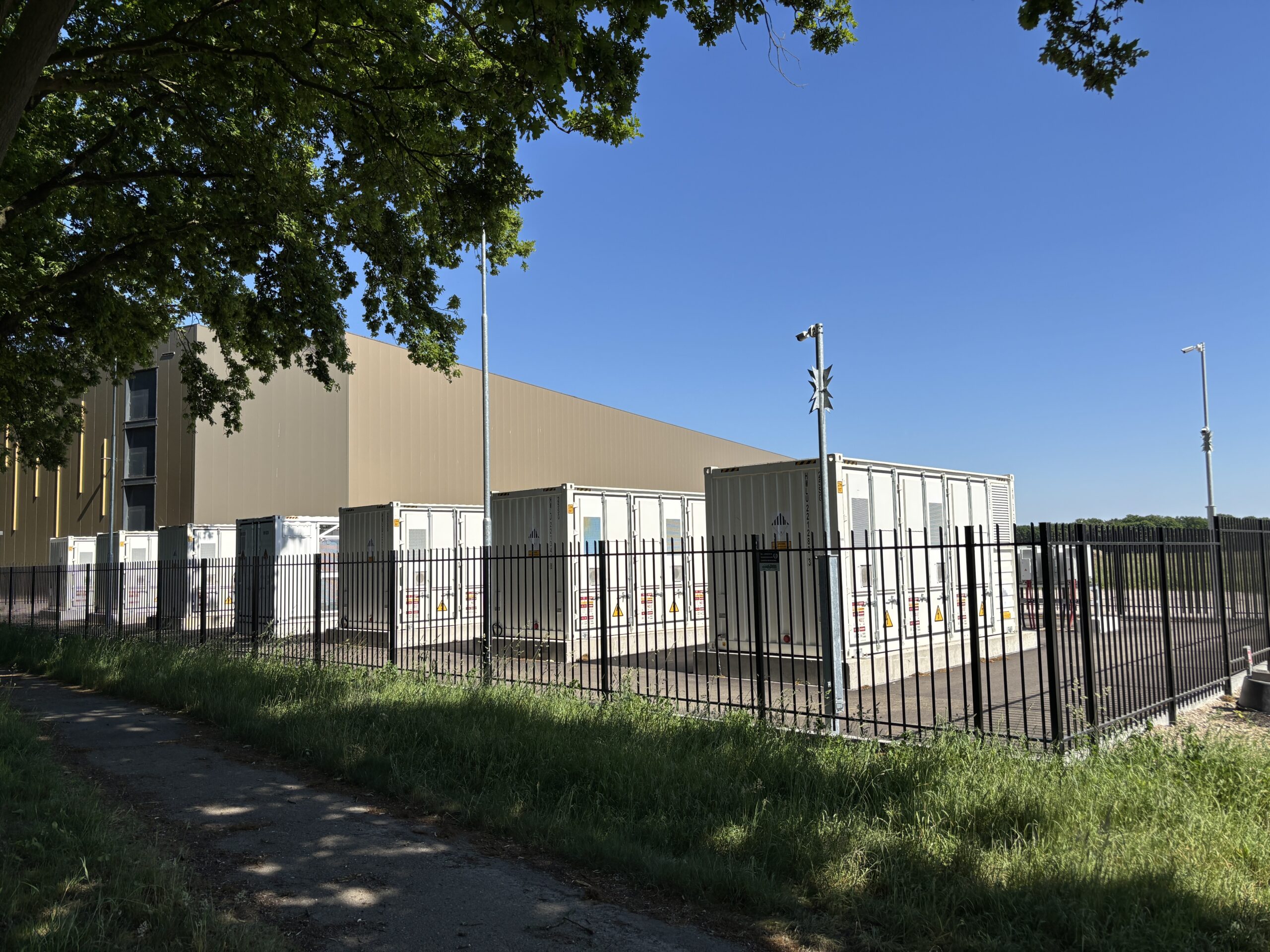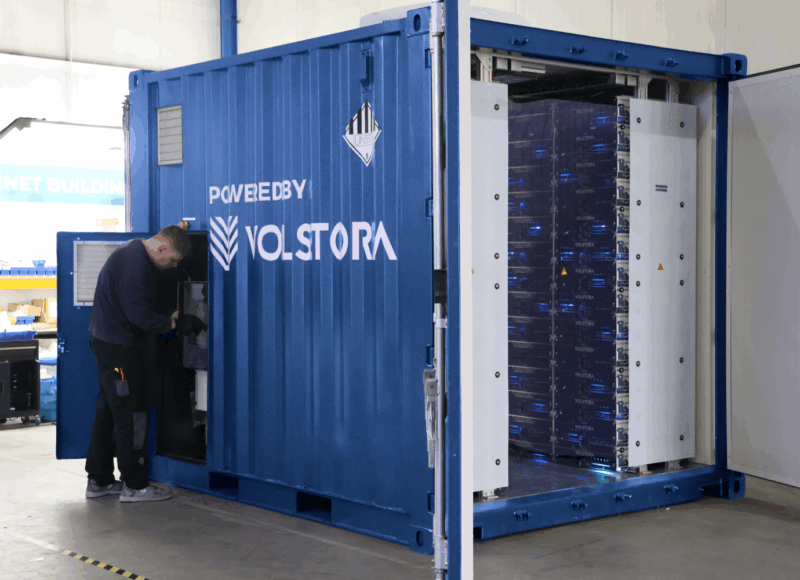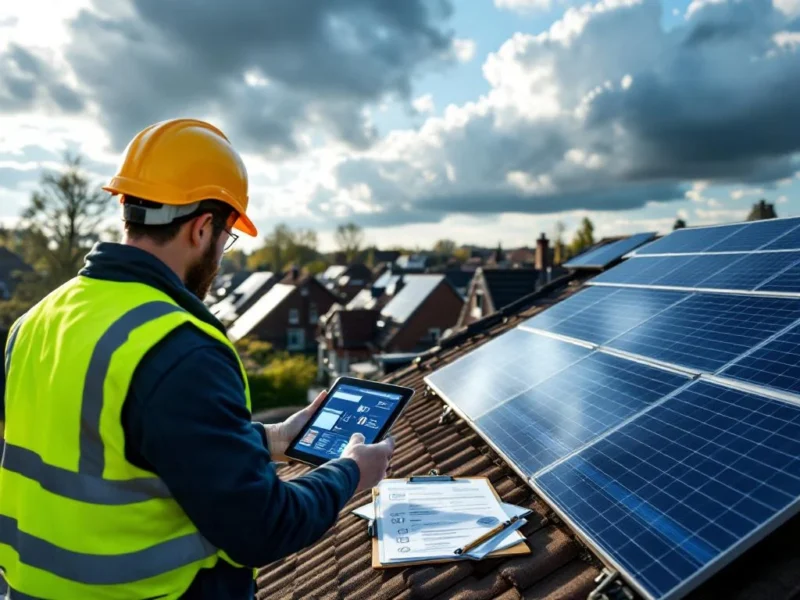Kan je een Scope 12 inspectie combineren met andere SCIOS Scope inspecties?
Ja, je kunt Scope 12-inspecties combineren met andere SCIOS-inspecties wanneer je commerciële zonne-installaties laat beoordelen. Hoewel elke inspectievorm zijn eigen focus heeft, kan het combineren van inspecties het proces efficiënter maken voor commerciële zonneprojecten. Omdat Scope 12 specifiek de veiligheid en kwaliteit van zonnepaneelinstallaties beoordeelt, kun je dit prima afstemmen met aanvullende inspecties die andere technische aspecten van energiesystemen onderzoeken. Voor jou als eigenaar van een commercieel zonneproject kan deze integratie het inspectieproces een stuk soepeler maken.

Wat zijn Scope 12- en SCIOS-inspecties eigenlijk?
Scope 12-inspectie is een speciaal protocol dat is ontwikkeld voor de Nederlandse markt en gericht is op commerciële zonne-installaties. Het controleert de elektrische veiligheid, de kwaliteit van de installatie en of alles voldoet aan de geldende industrienormen. In Nederland is Scope 12 de standaard geworden om te zorgen dat PV-systemen veilig werken en optimaal presteren.
SCIOS (Stichting Certificering Inspectie en Onderhoud Stookinstallaties) is het bredere inspectiekader dat verschillende technische inspecties regelt voor uiteenlopende installaties. Iedere scope binnen SCIOS behandelt specifieke onderdelen van technische systemen:
- Scope 1-7: verbrandingsinstallaties (ketels, branders)
- Scope 8: Elektrische installaties gericht op veiligheid voor werknemersScope 8: elektrische installaties, gericht op veiligheid van medewerkers
- Scope 9: veiligheid van elektrisch gereedschap en apparaten
- Scope 10: Brandveiligheidsinspectie voor elektrische installatiesScope 10: brandveiligheid van elektrische installaties
- Scope 11: explosieveilige installaties
- Scope 12: fotovoltaïsche (PV) installaties
Scope 12-inspecties zijn gebaseerd op een mix van Nederlandse en internationale normen, zoals NEN 1010, NEN 3140, NEN-EN-IEC 62446-1, NEN-EN-IEC 61439 en SCIOS Technisch Document 18. Deze inspecties richten zich vooral op brandveiligheid, de technische staat van de installatie en de kwaliteit van het uitgevoerde werk. Hier kun je meer lezen over de specifieke eisen en beoordelingscriteria van Scope 12. U kunt meer leren over de vereisten van Scope 12 inspecties and their specific evaluation criteria.

Kun je Scope 12 combineren met andere SCIOS-inspecties?
Ja, dat kan. Scope 12-inspecties zijn goed te combineren met andere SCIOS-scopes voor commerciële zonne-installaties. Technisch is dit haalbaar en in de praktijk vaak handig, zeker wanneer er meerdere systemen aanwezig zijn op dezelfde locatie.
De meest voorkomende combinaties zijn:
- Scope 8 + Scope 12: Omdat zonnepanelen op de elektrische infrastructuur aansluiten, vullen deze inspecties elkaar goed aan.
- Scope 10 + Scope 12: Voor locaties met elektrische installaties die een brandrisico hebben én zonne-installaties.
- Scope 8 + Scope 10 + Scope 12: Voor batterijopslagsystemen die gekoppeld zijn aan PV-installaties. Hierbij moet je niet alleen brandrisico’s controleren, maar ook andere veiligheidsrisico’s voor medewerkers.
Belangrijk: hoewel je de inspecties tegelijk kunt plannen, moeten ze nog steeds worden uitgevoerd door gecertificeerde inspecteurs voor elke scope. Niet alle inspectiebedrijven zijn gecertificeerd voor alle SCIOS-scopes, dus soms is coördinatie tussen verschillende specialisten nodig.
Wat zijn de voordelen van gecombineerde inspecties?
Het combineren van Scope 12 met andere relevante SCIOS-inspecties biedt meerdere voordelen voor jou als eigenaar of operator van een commerciële zonne-installatie:
Kostenbesparing: Meerdere inspecties tegelijk laten uitvoeren scheelt vaak reistijd, voorbereiding op locatie en projectmanagementkosten. Veel inspectiebedrijven bieden pakketkortingen aan als je meerdere scopes tegelijk boekt.
- Tijdwinst: Door inspecties te combineren minimaliseer je operationele onderbrekingen en reduceer je het aantal bezoeken aan de locatie. Voor bedrijven waar stilstand geld kost, levert dit echt voordeel op.
- Volledig overzicht van risico’s: Inspecteurs kunnen interacties tussen systemen identificeren die bij losse inspecties mogelijk over het hoofd worden gezien. Dit zorgt voor beter risicobeheer en hogere veiligheid.
- Efficiënte documentatie: Gecombineerde rapporten hebben een consistente opmaak en aanbevelingen, wat het implementeren en bijhouden voor facility managers makkelijker maakt.
Wanneer is Scope 12 verplicht?
Scope 12-inspectie is niet wettelijk verplicht alleen omdat je zonnepanelen installeert. Het wordt echter wel praktisch verplicht in bepaalde commerciële situaties.
Verzekeraars vragen een Scope 12-inspectie voordat ze commerciële PV-installaties verzekeren. Ze willen zeker weten dat de installatie veilig is en geen onnodig risico vormt. Zonder geldige Scope 12-certificering weigeren veel verzekeraars dekking.
Voor jou als eigenaar of operator van een commercieel zonneproject is Scope 12 dus eerder een praktische noodzaak dan een wettelijke verplichting. De inspectie bevestigt dat jouw installatie voldoet aan alle relevante normen zoals NEN 1010, NEN 3140, NEN-EN-IEC 62446-1 en NEN-EN-IEC 61439.
Belangrijk: Scope 12 geldt uitsluitend voor zonnepanelen en niet voor andere vormen van hernieuwbare energie. Scope 10 is niet verplicht voor zonnepanelen, maar kan wel vereist zijn voor andere elektrische systemen op dezelfde locatie.

Hoe beïnvloedt combineren van inspecties de verzekeringsvoorwaarden?
Het combineren van Scope 12 met andere SCIOS-inspecties verandert niets aan de basisvereisten voor verzekeringen van commerciële zonne-installaties. Scope 12 biedt geen kortingen op de premie, maar is wél een voorwaarde om verzekerd te worden tegen de standaardtarieven.
Verzekeraars, waaronder partijen die samenwerken met tussenpersonen zoals Solarif Insurance, vragen Scope 12-certificering om zeker te zijn dat jouw installatie veilig is en risico’s minimaliseert. De inspectie moet zonder bevindingen verlopen; eventuele issues moeten opgelost zijn voordat je verzekerd kunt worden. Gecombineerde inspecties geven een completer beeld, maar veranderen de basisvereisten niet.
Efficiëntie door gecombineerde inspecties
Wanneer jij Scope 12 wilt combineren met andere SCIOS-inspecties, houd dan rekening met:
- Gecertificeerde inspecteurs: Controleer of het inspectiebedrijf gecertificeerde inspecteurs heeft voor elke gewenste scope.
- Planning: Sommige inspecties moeten onder specifieke bedrijfsomstandigheden worden uitgevoerd; stem de volgorde af met het inspectiebedrijf om downtime te minimaliseren.
- Documentatie: Verzamel alle systeemdocumentatie, eerdere inspectierapporten en technische specificaties vooraf. Dit versnelt het proces en verbetert de kwaliteit van de resultaten.
- Toegangsvereisten: Zorg dat alle relevante delen van je locatie toegankelijk zijn en dat medewerkers beschikbaar zijn om vragen te beantwoorden. Let ook op dat de huidige markt langere wachttijden kent voor Scope 12-inspecties vanwege een tekort aan gekwalificeerde inspecteurs. Wacht niet te lang met plannen; soms kan het tot zes maanden duren.
- Voor grote systemen (>250 kW) kan een inspectie een hele dag of langer duren.
- Onthoud: combineren kan efficiënt zijn, maar elke inspectie moet nog steeds voldoen aan zijn eigen eisen. Het doel is het proces optimaliseren zonder kwaliteit of grondigheid te verliezen.
Let’s get started!
Laat onze gecertificeerde SCIOS Scope-experts jouw systeem inspecteren en je investering veiligstellen. Blijf compliant, verzekerbaar en zorgeloos. Plan vandaag nog jouw Scope 8-, Scope 10- en Scope 12-inspectie!
📧 Email: support@solarif.com
☎️ Telefoon: +31 (0)26 711 5050




